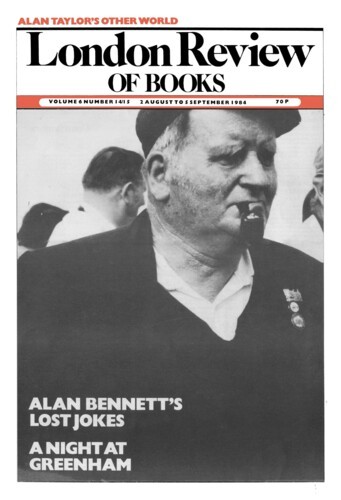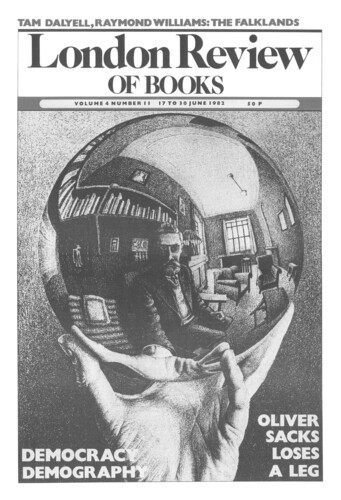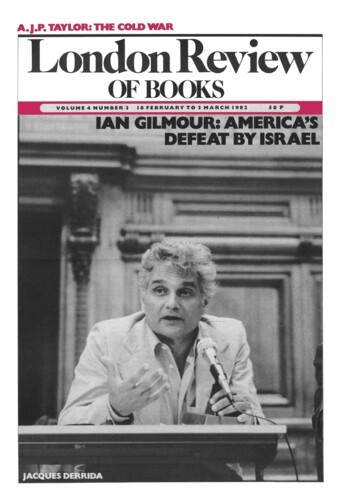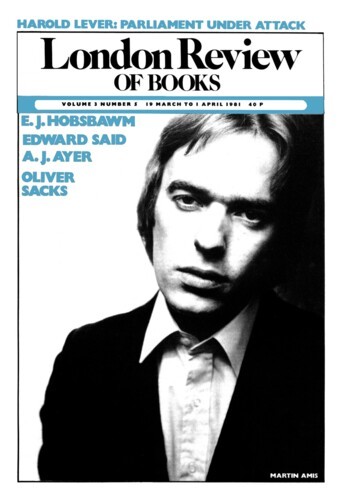Sitting it out
Paul Sieghart, 2 August 1984
The trial of Dr John Bodkin Adams at the Old Bailey in 1957 was one of the causes célèbres of the post-war years. Apart from sex, it had everything. Adams was a fashionable Eastbourne doctor. Portly. With a chauffeur-driven Rolls. Charged with murdering one of his rich old women patients, for a chest of silver. There were strong hints she was not his only victim. The Attorney-General prosecuted in person. The press had a field day. And Percy Hoskins, doyen crime reporter of the Daily Express, was there. Covering a story in which he himself had played no mean part. He didn’t believe in the Doctor’s guilt. But Beaverbrook, his proprietor, evidently did. If the story had gone wrong, it could have broken Hoskins. Roughly, that is the style in which this book is written. Plain. Direct. Hard-hitting, now that both the Doctor and Hoskins’s main villain, Superintendent Herbert Hannam of the Yard, are safely dead. It quickly becomes infectious. And if you like the pace of crime reporting in the popular press enough to put up with this continuous burst of machine-gun fire over more than two hundred pages, you will like the book. But even if you do not, it is still worth reading, for it gives a vivid account of a case that had more than one layer. The layer the public saw is the one Hoskins reports. Its catharsis came in the great battle of the legal and medical giants at the Old Bailey. In a trial for murder by poisoning, it was the tradition that the Attorney-General himself should lead for the prosecution. In the other corner, Adams was represented by Geoffrey Lawrence QC, one of the most skilful advocates of his day, whose normal practice lay in the civil rather than the criminal courts. Not for him the faded Rumpole clichés of ‘I am bound to put it to you, Mr Snooks, that what you are telling My Lord and the jury on your sacred oath in this court is a tissue of lies’: his cross-examinations, especially of the prosecution’s forensic experts, were meticulously planned, cool, subtle and ultimately deadly. The transcripts became coveted possessions at the Bar, cherished as paradigms of the art from which youngsters were encouraged to learn how the real masters did it.




